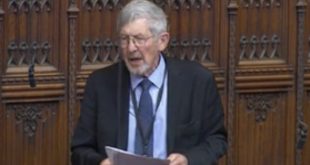Andrew Rhodes, Chief Executive of the UK Gambling Commission (UKGC), has published an open letter, warning stakeholders of the “misrepresentation of gambling statistics”.
The letter sees Rhodes reiterate his previous warning that “opinions on the subject and they sometimes differ very greatly and can be equally strongly held. Sometimes this can boil over into personal comments and even conspiracy theories as to what a given group, organisation or individual is believed to be seeking.”
Yet, of deepest concern, Rhodes cites that the Commission has witnessed a “significant increase in the misuse of statistics around gambling as different parties seek to make persuasive arguments for or against different proposals. “
This is an ‘unacceptable’ tactic that is being used by a wide range of groups with interests in either the gambling industry or its reform, according to Rhodes – including operators, trade bodies, charities, media outlets, sporting venue owners.
The two year course of the Gambling Act review – which culminated in the White Paper publication in April, with the first round of consultations on its recommendations now underway – saw regular citing of statistics by interested parties.
As the Gambling Review enters its consultation phase, the UKGC states that it has seen a “common misuse of statistics in recent months has been regarding the rate of problem gambling in Great Britain, and the conflation of problem gambling and gambling-related harm.”
Problem gambling and gambling-related harm are separate but linked experiences, and there is no single quantifiable measure of either, Rhodes asserted in his letter.
Of note, the UKGC is particularly frustrated by the use of data derived from its PGSI (Problem Gambling Severity Index) to make assumptions about the extent of gambling-related harm in the UK.
Rhodes singled out statements varying on ‘99.7% of people who gamble do so without being harmed’ and ‘only 0.3% of gamblers are harmed’ as specific examples of statistical misuse.
Although not naming names, the UKGC Chief Exec remarked that ‘many have tried to suggest’ that the PGSI score-derived figure of 0.3% is only indicative of those who game, when it is actually indicative of the whole UK adult population.
Likewise, the Health Survey for England 2021 indicates that of those who gambled within the past year, 0.8% experienced problem gambling. Additionally, the 0.3% does not account for those ‘at risk’; 1.2% are at moderate risk and 4% at low risk.
Rhodes noted that assumptions about gambling types being ‘less risky’ are misleading. Problem gambling rates differ by activity be it, 0.9% of National Lottery players, 2.8% of offline horse racing bettors, and a staggering 8.5% of online slots, casino, or bingo players show signs of problem gambling.
Despite his criticism of the repeated misrepresentation of the 0.3% figure, Rhodes did also state that the problem gambling rate ‘overall is low’ compared to participation in the activity.
However, the issue with use of stats is that ‘beneath the surface of those numbers the picture is more complicated’, and so data must be understood and used properly.
Furthermore, the Commission has witnessed the misrepresentation of its trend data and surveys, in the comparison of datasets. Misleading comparisons arise from when authors do not disclose “the proper context of how the data was collected and added their own caveats on reports.
Rhodes concluded: “Even with a relatively low proportion of people experiencing problem gambling we must remember that this can and does have catastrophic consequences and equates to hundreds of thousands of people directly affected and a greater number amongst friends, families and others.
“The debate around gambling is often a fierce one, but nobody is well-served by statistics being misused to further an argument.
“I therefore ask anyone commenting on this area to take a greater degree of care to ensure they are using evidence and statistics correctly, accurately and in the proper context and with any necessary caveats applied.”









